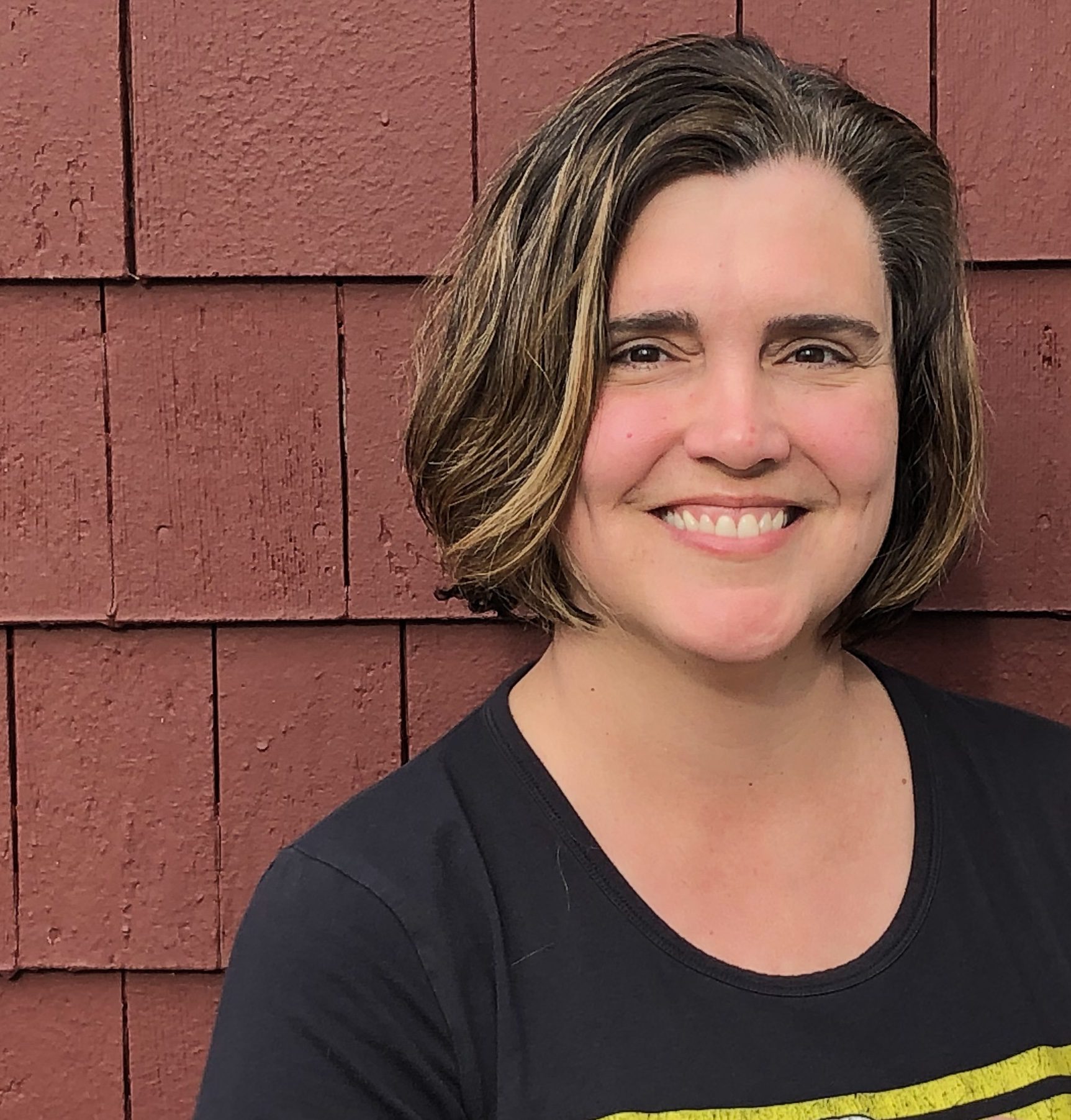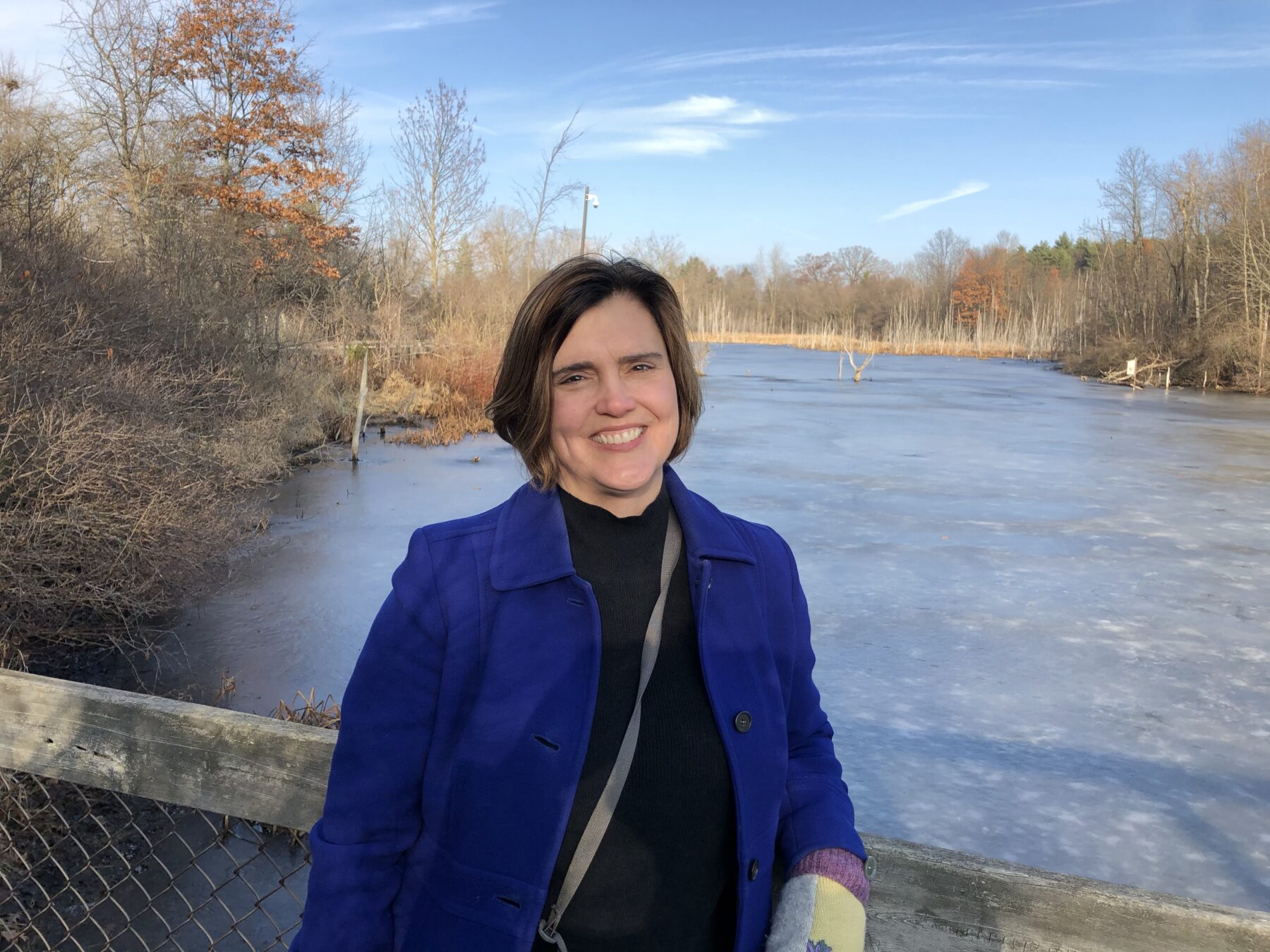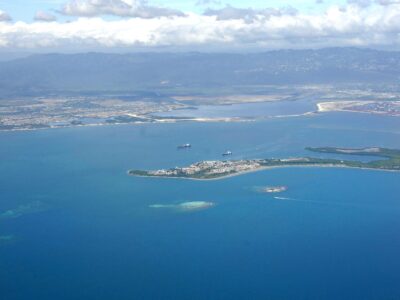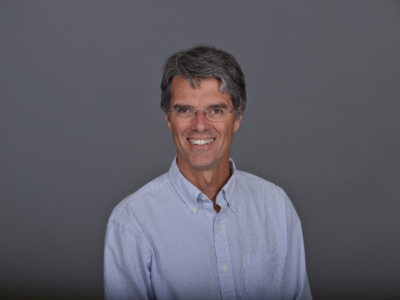“Conflict resolution” is not a phrase one may be expecting to hear while engaging in a conversation about a changing climate or the movement known as Creation Care within evangelical circles, but it’s one of the first things that Dr. Kathi Groenendyk of Calvin University brings up when asked to explain her passion and field of interest in Creation Care.

A communications specialist with certifications in crisis communication and integrated communication from the Public Relations Society of America, who also has earned the PRSA badge of completion in executive communication, Dr. Groenendyk is poised to speak with authority on the topic of messaging and climate change.
The Iowa native, who remembers church services “literally praying for rain,” knew early on that her life’s calling would lead her somewhere in nature.
Laughing, she says, “You know, as much as I could be outside, it was the best way for me to kind of live my life.”
Continuing on to the topic of her chosen area of expertise, she describes how she became interested in teaching communication, conflict resolution, and creating clarity around environmental issue conversations.
“I decided to go on to graduate school so I went to Texas A&M for a master’s degree. And one of the professors in the communications department was researching conflicts and ways to resolve conflicts between ranchers and people who were working to protect endangered birds. And she was having conversations with them and trying to figure out how can we have better conversations, you know, between these various groups, avoid fighting, but figure out the best way to solve those problems? I think I remember saying to her in her office, “Wow, you can actually do this for a living!”
Drawing a sharp parallel between her personal walk with God and how God shows His love for persons of faith, Dr. Groenendyk directly connects this expression of love to the creation around her, asking, “How do we know about God? How is God revealed to us?”
Answering her own questions, she continues, “The first way that God reveals himself is through the creation. And so for me, like, I look at the beauty of creation, and I don’t just see kind of, you know, the tree outside my window. But that is what God has given me to know that He is good, and that He cares for us and that He also just enjoys his own creation. So, you know, yes, it is loving my human neighbor, but also I’m seeing creation as a way that God reveals Himself to us, and something then I should care for.”
As Dr. Groenendyk spools out her backstory, she gains momentum, imbuing the conversation with a sense of purpose and passion as she fills in the signposts along her life journey that led her to where she is today.
“I was really blessed as part of Texas A&M to be a research assistant for that same professor,” she says, “where we went down to the Texas Mexico border. This is when there was a high rate of really severe, severe birth defects. And it was this suspicion that it was because of pollution.”
Dr. Groenendyk said her research involved interviewing different community members about this issue and having workshops to help them resolve and approach these types of conflicts.
“So that kind of interest has always stayed with me. And now, as a teaching faculty member, I really make sure to introduce these concepts about constructive conflict resolution in my classes, and also the importance of thinking about our words and how we talk about things that matter to us,” explained Dr. Groenendyk. “But, also how we think about talking with others who might come from a different perspective than we do.”
In response to the question of why it’s so important to communicate clearly and fairly on such a weighty topic, especially for a person of faith, Dr. Groenendyk cites a simple biblical maxim:
“(It’s) loving our neighbor. Right? If we are to love our neighbor, then we should care about their living conditions and how they’re living.”
Asked to speak directly to her field of expertise and to address the best way to communicate on a topic that has been politicized for decades and that can be a polarizing one in the modern church, Dr. Groenendyk starts simply: “The first is listening. You’ve got to understand who you’re talking to, the one individual, and what’s their background? What do they value? Where are they coming from in terms of dealing with this issue? And then I can think about, okay, in what ways, what do we have in common, and from there, kind of find that common ground and then build on it. And kind of having that humility. And I think that’s another Christian virtue, right? That I’m going to be humble in talking with someone who might have a different view than me, and I want to engage them in a meaningful way.”
One is reminded, listening to an expert like Dr. Groenendyk speak, that these simple tools, so often forgotten or discarded in public and private debate, are of the utmost importance when discussing a pressing issue like climate change. One gets the feeling that this is her life’s goal, to help people better communicate with each other, as fellow citizens, brothers and sisters in faith, and good stewards of God’s Creation.





 Copyright
2025
Root and Vine
Copyright
2025
Root and Vine